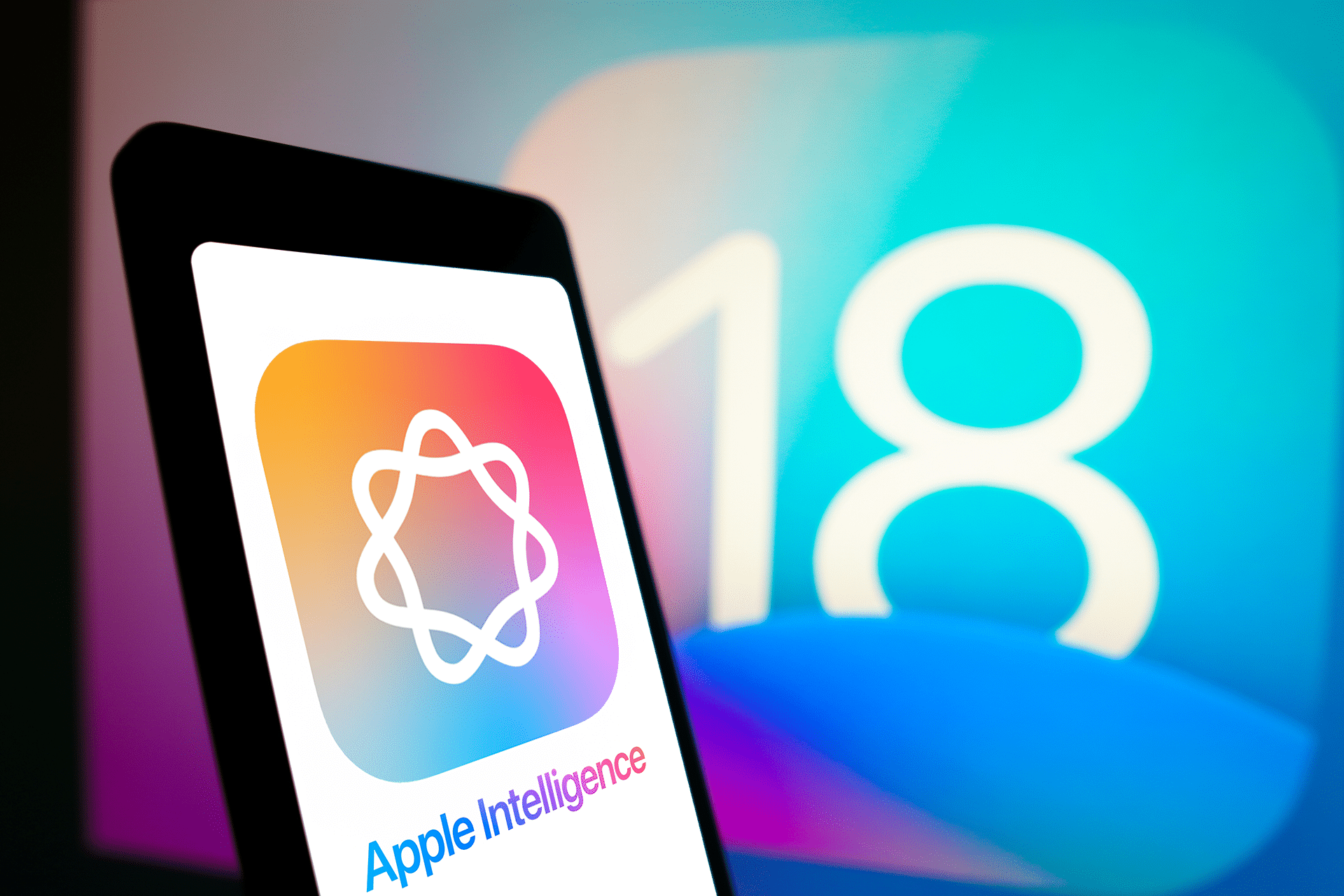China represents a massive market for Apple, but strict government regulations regarding data privacy and cloud storage have created challenges for foreign tech companies operating in the region. Unlike in other markets where Apple uses its in-house infrastructure, China requires data localization, meaning that sensitive user information must be stored within the country.
1. Compliance with Chinese Data Regulations
The Chinese government enforces strict cybersecurity laws that require companies to store user data locally and ensure that AI services meet specific content and operational guidelines. Apple’s global AI models, which rely on cloud computing, need to be adapted to fit these requirements.
By partnering with Alibaba, Apple ensures compliance while maintaining the performance and security of its AI services.
2. Alibaba’s Role in the Apple Intelligence Expansion
Alibaba Cloud, one of China’s largest cloud service providers, will handle the backend processing for Apple Intelligence China. This partnership allows Apple to deploy its AI features without relying on foreign data centers, ensuring a smooth integration within the country’s regulatory environment.
This collaboration also opens the door for further AI-powered optimizations, as Alibaba’s expertise in cloud computing and AI infrastructure aligns with Apple’s need for high-performance data processing.
3. Keeping Up with Local AI Competition
Chinese tech giants such as Baidu, Tencent, and Huawei have been aggressively developing AI-powered services, from smart assistants to advanced machine learning models. Apple’s partnership with Alibaba enables it to remain competitive in a market where AI adoption is rapidly expanding.
With Chinese consumers expecting intelligent automation in their devices, Apple’s AI rollout ensures that iPhone and Mac users receive features comparable to those available in other regions.
What AI Features Will Be Available in China?
Apple’s AI capabilities, branded as “Apple Intelligence,” are designed to enhance productivity, personalization, and automation across its devices. The introduction of Apple Intelligence China will bring several key features to users.
1. AI-Powered Siri Enhancements
Siri is expected to receive a significant upgrade, leveraging advanced natural language processing and contextual awareness. With a more conversational and proactive assistant, users can enjoy improved voice commands, smarter notifications, and AI-driven recommendations.
2. Smart Text and Image Recognition
Apple’s AI-powered text and image recognition features will be integrated into Notes, Photos, and Mail. Users will be able to search for handwritten text, automatically categorize images, and receive smart suggestions for document organization.
3. On-Device AI Processing for Privacy
Apple is known for its emphasis on privacy, and the company will continue this approach by enabling most AI processing to occur on-device. This ensures that user data remains secure and is not transmitted to external servers unnecessarily.
4. Predictive Typing and Writing Assistance
Apple’s AI-driven text prediction and writing assistance tools will help users compose messages, emails, and documents with greater ease. These features will be particularly useful for professionals who rely on Apple devices for productivity.
5. Personalized AI Recommendations
With AI integration across iOS, macOS, and iPadOS, Apple devices will provide personalized suggestions for app usage, calendar events, and reminders based on user behavior. This level of customization will improve efficiency and streamline daily tasks.
Challenges Apple Faces in Expanding AI to China
While the Apple Intelligence China initiative marks a major milestone, there are several hurdles Apple must overcome to ensure long-term success.
1. Government Scrutiny and Content Restrictions
China imposes strict regulations on AI-generated content, particularly in areas such as news aggregation, social media, and search results. Apple must ensure that its AI tools comply with content guidelines while maintaining the high-quality experience that users expect.
2. Competition from Local AI Providers
Alibaba, Baidu, and Tencent are already well-established in China’s AI market, with their own cloud-based services and smart assistants. Apple will need to differentiate its AI features by emphasizing privacy, security, and seamless device integration.
3. Potential Performance Limitations
Since Apple relies on Alibaba Cloud rather than its own infrastructure, there could be some differences in AI performance compared to other regions. Apple must work closely with Alibaba to optimize speed, responsiveness, and real-time processing.
4. Balancing AI Innovation with Privacy
While Apple’s AI capabilities are designed to operate with minimal data collection, integrating with Alibaba Cloud means that certain processing tasks will rely on external servers. Apple must maintain its commitment to privacy while adhering to China’s regulatory requirements.
How This Partnership Benefits Chinese Consumers
Despite the challenges, the Apple Intelligence China initiative provides several advantages for users in the region.
1. Access to Apple’s Latest AI Innovations
Without this partnership, Apple’s AI advancements might not be available in China due to regulatory restrictions. Now, Chinese consumers can benefit from features that enhance device intelligence and personalization.
2. Improved AI Performance with Local Cloud Integration
By leveraging Alibaba’s cloud infrastructure, Apple ensures that AI-powered features run efficiently without latency issues. This enhances the user experience for Siri, search functions, and predictive text.
3. Stronger Integration with the Local Digital Network
Alibaba’s influence extends beyond cloud computing—it operates major platforms such as Alipay and Taobao. This partnership could lead to deeper integration between Apple’s AI services and widely used Chinese digital platforms.
4. Maintaining Apple’s Competitive Edge in China
Apple faces increasing pressure from local brands such as Huawei and Xiaomi, which have made significant strides in AI development. By investing in AI capabilities tailored for Chinese users, Apple strengthens its market position.
What’s Next for Apple Intelligence in China?
The introduction of Apple Intelligence China could mark the beginning of a broader AI strategy for Apple in the region. As technology evolves, Apple may explore additional partnerships and expand AI-driven services across its product lineup.
1. Future AI Expansions
Apple may introduce new AI-powered applications in areas such as:
- Healthcare: AI-driven health tracking and diagnostics within the Health app.
- Finance: Smarter budgeting tools and AI-powered financial insights.
- Smart Home: Deeper HomeKit integration with AI automation.
2. Possible Expansion Beyond Alibaba
While Alibaba is the initial cloud partner, Apple may collaborate with other Chinese tech firms to enhance its AI capabilities. Future agreements could involve companies specializing in AI development, such as SenseTime or iFlytek.
3. AI-Powered Hardware Innovations
Apple’s AI strategy is not limited to software—future iPhones, iPads, and Macs could incorporate hardware enhancements specifically designed for AI processing. The next generation of Apple Silicon chips may include dedicated AI cores optimized for localized intelligence.
Final Thoughts on Apple Intelligence China
The Apple Intelligence China initiative represents a bold step in Apple’s AI expansion strategy. By partnering with Alibaba, Apple ensures that its AI features comply with local regulations while delivering a premium experience to users.
This move strengthens Apple’s foothold in one of its most important markets, setting the stage for further AI-driven advancements. As Apple continues to refine its artificial intelligence capabilities, its ability to balance innovation, privacy, and regulatory compliance will determine the long-term success of its AI ambitions in China.














